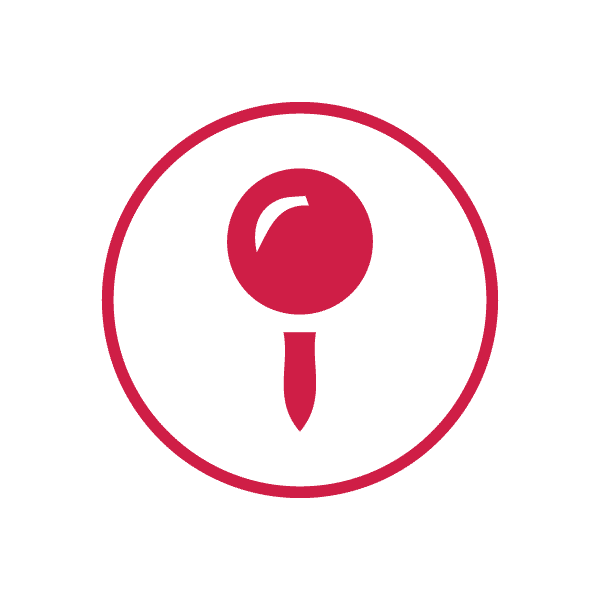Your quick and handy introductory guide to forex trading in South Africa.
Ever wondered what forex trading is and what all the fuss is about?
Forex trading involves speculating on moves in the global currency markets, the largest financial markets in the world with more than 5 trillion USD per day in trading volume. The foreign exchange market is larger than all of the world’s stock markets combined and is open 24/5, offering endless opportunities for savvy forex traders.
In South Africa, forex trading is regulated by the Financial Services Conduct Authority (FSCA). So when you trade forex with a regulated South African broker, you can rest assured your trading capital is in good hands.
Forex Trading 101
Forex Currency Pairs
Forex trading is always done in pairs – That is if you are buying one currency, you are selling another.
You’re essentially betting the currency you are buying will outperform the one you are selling.
For example, if you buy USDZAR, you are betting the US Dollar will outperform the Rand. Or if you sold USDZAR, you are betting the Rand is going to outperform the Dollar.
Forex pairs can be classified into three main categories:
- Major Pairs – these are major global currencies paired against the US Dollar, the most liquid and actively traded currency pairs such as EURUSD, GBPUSD, AUDUSD, etc.
- Minors or Crosses – Pairs that don’t feature the USD eg EURAUD, EURGBP, etc.
- Exotics – Pairs featuring an emerging market currency such as the Rand or Lira eg USDZAR or USDTRY
Major pairs are the most liquid and have the lowest spreads, followed by minors/crosses and finally exotics which are the most volatile.
Forex Analysis
Before placing a trade in the forex market, you need to develop a view of what the market is going to do, this is done through market analysis.
There are three broad categories of forex market analysis:
- Technical Analysis – Technical analysts study price and charts, using historical data in an attempt to determine what is likely to happen in the future. Technical analysts use a range of tools including trend-lines, Fibonacci retracements, and technical indicators to analyse the market.
- Fundamental Analysis – Fundamental analysis involves looking at the economic factors and data driving a forex currency pair. A strong economy is generally good for a nation’s currency so traders will place bets on a currency when its economy is strong and better against it when the economic data shows real or potential weakness. Fundamental analysis can seem a little daunting at first, but it actually isn’t all that complex – you do not need an economics degree to trade fundamentals!
- Sentiment Analysis – Sentiment analysis is relatively new to the forex market and involves looking at actual data about the market itself. Examples of internal analysis are order flow analysis, which analyses what other participants in the market are doing to either bet with the crowd or against it.
Trade Forex in Both Directions
One really attractive feature of the forex markets is the ability to make money when markets rise or when they fall.
If you think a currency pair is going to rise, you can buy it by going long; or if you think it is going to fall, you can sell it by going short. Though shorting is available in some global stock markets, it tends to be rather difficult, expensive and heavily regulated if not outright banned.
Shorting in forex is as simple as putting in your trade size and smashing that sell button.
Forex Trading Example Combining Forex Analysis
Imagine the Federal Reserve is expected to cut interest rates, whilst the Reserve Bank of South Africa has indicated they will be raising rates over the coming year.
These fundamentals suggest the Rand could appreciate against the US Dollar over the coming months as investors chase relative yield.
Having completed this fundamental analysis, we believe the Rand is going to appreciate against the US Dollar and want to sell USDZAR, simultaneously selling US Dollars and buying Rand.
We go to our charts and perform some technical analysis to identify an ideal selling point based on historical price action and execute a short trade when USDZAR rises to that price.
The Rand rises against the US Dollar over the coming months with USDZAR falling substantially.
We now look at some internal positioning data from a broker and see that nearly everyone is short USDZAR, making money off the same trade. We know this can’t go on forever, so we decide to close our short trade and bank our profits before everyone else does the same.
The above is an example of using all three forms of forex analysis in conjunction, to paint a clearer picture of where the market is going to go.
Trading Forex in South Africa
Trading forex in South Africa is a great option.
South Africa has a very strong and well-regulated economy and a good choice in local brokers. If you’re based in South Africa, a great place to start is with a local regulated forex broker, as your deposit and withdrawal process will be frictionless, you know support staff will be awake and available when you are and you know your broker has been scrutinized by the FSCA.
Trading with foreign brokers can be very expensive as you will likely pay wire deposit/withdrawal fees and can wait weeks for these to arrive or be processed, despite the cost involved.
You may also find yourself in a dispute with a foreign broker and have few if any options for resolving your dispute.
Blackstone Futures is Your Trusted FSCA Forex Broker
Blackstone futures are one of the largest forex brokers in South Africa and we have some of the lowest spreads and fees on the continent.
For more than 10 years we have prided ourselves on offering South African forex traders the best trading conditions and helping them achieve their forex trading goals. If you’re looking for a trusted, local, and regulated forex broker, you need to look no further than Blackstone Futures.











